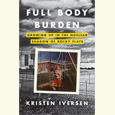Humanity's Final Exam
Forget nuclear suicide. Forget terrorism. Gwynne Dyer’s Climate Wars makes a case for the truly global issue we should be addressing now
As climate-change skeptics are eager to point out, periods of global warming happened before humans were around to cause it. In his new book, Climate Wars, Canadian foreign-relations journalist and military historian Gwynne Dyer reviews the evidence for human-influenced climate change against the backdrop of prehistoric climate change and its resulting cataclysms and extinctions. Looking ahead, he also explains the various tipping points that would greatly accelerate the rate at which global temperatures rise. If nothing is done, and a remnant of humanity manages to survive until the twenty-second century, it will find the oceans emitting enough sulfur to destroy all life. None of this dismal news should surprise the informed public. Much of the public is not informed, however, so Dyer includes it.
 The book’s real contribution is to extrapolate from changes in climatic conditions to the likely consequences. According to Dyer, large parts of the lower latitudes will become too hot, dry, and/or stormy for food production—or habitation. Mass migrations to northern Europe from southern Europe and Africa, and to the U.S. from Latin America, will increase international tensions. And famine, as Dyer points out, is a proven war starter. In China, the likely result of famine will be civil war and revolution, followed by a war of aggression to take Siberia—newly productive, agriculturally—from Russia. The nations bordering on the newly ice-free Arctic Ocean will squabble over who has the right to exploit its fisheries, trade routes, and mineral resources. In the U.S., California’s central valley, our breadbasket, will wither without water from the Sierra snowpack. Water, like famine, will become a potent war starter. “[I]t is probably going to be a long, miserable experience, with an uncertain outcome,” Dyer predicts.
The book’s real contribution is to extrapolate from changes in climatic conditions to the likely consequences. According to Dyer, large parts of the lower latitudes will become too hot, dry, and/or stormy for food production—or habitation. Mass migrations to northern Europe from southern Europe and Africa, and to the U.S. from Latin America, will increase international tensions. And famine, as Dyer points out, is a proven war starter. In China, the likely result of famine will be civil war and revolution, followed by a war of aggression to take Siberia—newly productive, agriculturally—from Russia. The nations bordering on the newly ice-free Arctic Ocean will squabble over who has the right to exploit its fisheries, trade routes, and mineral resources. In the U.S., California’s central valley, our breadbasket, will wither without water from the Sierra snowpack. Water, like famine, will become a potent war starter. “[I]t is probably going to be a long, miserable experience, with an uncertain outcome,” Dyer predicts.
Dyer writes as a journalist and includes long quotations from interviews with scientific, military, and world affairs experts. The military establishment sees this scenario coming and is already planning for its inevitability. Governments could prepare for it, too, if they were willing to: “The business of moving from fossil fuels to other sources of energy is relatively straightforward. The alternative technologies exist, and implementing them over twenty or thirty years would probably cost no more than 1 or 2 per cent of GDP annually.” But political leadership is too concerned with the current economy, the war on terror, and the next election to pay much attention to imprecise, long-term scientific predictions and the possible results.
 Dyer points out that because global warming’s threat to peace is neither immediate nor local, it will require long-term, global thinking, for which humans have shown little talent. To forestall the cataclysm, nations must give up their traditional competition and really cooperate for the first time. The cold-war experience offers some encouragement to Dyer: “We just barely scraped through the mid-term exam in the last century: we acquired the ability to destroy our civilization directly, by war, and we managed not to use it. Now it’s the final exam, with the whole environment that our civilization depends on at stake. It’s not just about knowledge and technical ability; it is also about self-restraint and the ability to cooperate. Grown-up values, if you like. How fortunate that we should be set such a test at a point in our history where we have at least some chance of passing it.”
Dyer points out that because global warming’s threat to peace is neither immediate nor local, it will require long-term, global thinking, for which humans have shown little talent. To forestall the cataclysm, nations must give up their traditional competition and really cooperate for the first time. The cold-war experience offers some encouragement to Dyer: “We just barely scraped through the mid-term exam in the last century: we acquired the ability to destroy our civilization directly, by war, and we managed not to use it. Now it’s the final exam, with the whole environment that our civilization depends on at stake. It’s not just about knowledge and technical ability; it is also about self-restraint and the ability to cooperate. Grown-up values, if you like. How fortunate that we should be set such a test at a point in our history where we have at least some chance of passing it.”
International agreements to decarbonize the worldwide energy infrastructure are essential, of course, though Dyer has little respect for the Kyoto Protocol. If it “is the best that the evolutionary process can provide as an example of the survival of the fittest, the very clear deduction is that we’re not fit to survive,” he says, “and we’re not going to.” But even if a successor agreement is effective, it won’t be enough. It’s already too late to prevent warming, even if all greenhouse-gas production were stopped immediately.
In his last chapters, therefore, Dyer presents a cogent argument for international agreements on technological fixes, presumably temporary, to hold the rise of temperatures in check until the natural climate balance can recover. If we mean to survive as a species, he writes, “We are going to get the miserable job of planetary maintenance engineer for a while.” We’d better learn how to do it quickly.
Climate Wars is, unsurprisingly, a depressing book, at times tedious and repetitive, and Dyer’s trick of switching to past tense and looking back on his extrapolations doesn’t always work as a literary device. But he heaps up a lot of convincing arguments about how in times past Earth was completely uninhabitable, and why is likely to become so again. Fending off the disaster we unknowingly began is our life-and-death responsibility, and Dyer offers as good a guide as any about how to accomplish it.
Gwynne Dyer will discuss Climate Wars at Davis-Kidd Booksellers in Nashville on July 20 at 7 p.m.


